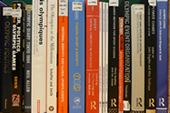Sport? That's so gay!
Simone Bacchini writes:
It sometimes feels like the case for sport as a vehicle for social change is a bit overstated. Yet, the announcement that London has bid to host the 2018 Gay Games (http://tiny.cc/zl38ow) might be, well, a game changer.
The Gay
Games was started in San Francisco,
in 1982. Originally, it was called “Gay Olympics” but a lawsuit filed by the
International Olympic Committee (IOC) meant that the name had to be changed. To
date, there have been eight editions, mostly held in North
America. The Gay Games is the world’s largest sporting and
cultural event organised by and for the LGBT (lesbian, gay, bisexual, and transsexual)
community. Participation, however, is not restricted to athletes who identify
as LBGT and, according to its statute, the label includes “transgender, transsexual,
intersex, queer, questioning people, and of course, an essential constituency
for change: straight allies.” http://tiny.cc/sc48ow
Sporting events for minority groups, some of them facing varying
degrees of discrimination have a double function. The strengthen in-group
identity, by bringing together those who might feel isolated in the wider
society in which they live. They also offer a chance of visibility, often helping
dispel negative stereotypes.
Sport is one of the favourite arenas in which
socially approved norms of gender behaviour are displayed, learned, and
reinforced. So, it is often the case that gay men are not associated with
sporting prowess, while women who engage in sport, especially the more “unfeminine”
ones – such as boxing – are more or less overtly thought of, “accused”, I am
tempted to say, being lesbians. Which of course may or may not be true.
Obviously, for many LGBT people
sport has never been an issue: they simply aren’t interested. But for many
others the world of competitive sports has been a difficult, often frightening
one. For the non-heterosexual person, especially when young, the playing field
and the locker rooms can feel like no-go areas, unless you’re not open about
your sexuality or this is not obvious. And that’s a shame, frankly.
The Paralympics has been an important tool in changing views of and attitudes towards disability. Could the Gay Games do the same for homosexuality, bisexuality, transgenderism, etc? More visibility would certainly be good, although it remains to be seen the extent to which the media would be covering the event. And would attitudes be changed in Britain, if London were to win the bid? Well, that’s a research topic for existing and aspiring social scientists and sociologists of sport out there. The future of sport may look a bit pinker, after 2018!
References
Journal of Homosexuality. Binghampton: Haworth.
London Reference Collection: SPIS Journals Display (open access)
Anderson, E. (2009). Inclusive Masculinity: The Changing Nature of Masculinities. London: Routledge.
General Reference Collection: SPIS306.7662 (open access)
Symons, C. (2010). The Gay Games: A History. London: Routledge.
Document Supply: m11/.11320

